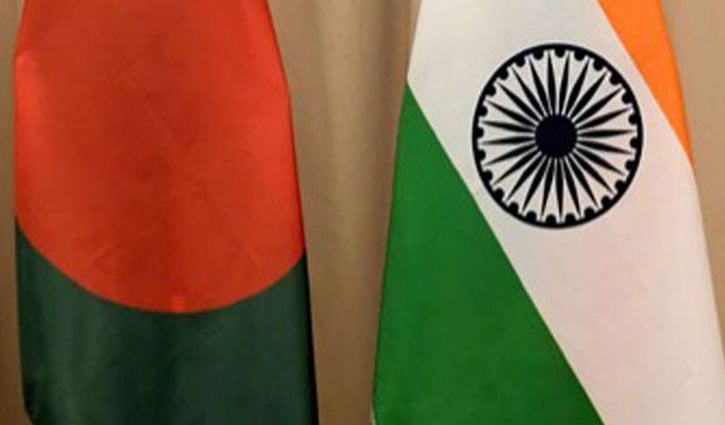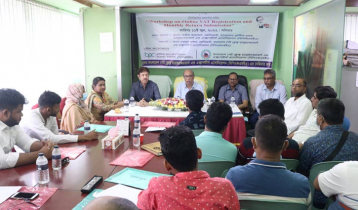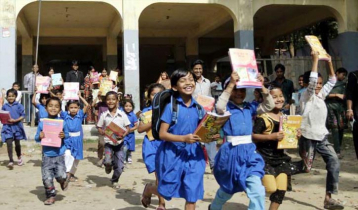‘Boycott India’ campaign in Bangladesh is a mirage threatening progress
Siam Sarower Jamil || risingbd.com

In recent times, Bangladesh has witnessed the rise of a concerning movement advocating for the boycott of Indian products and services. This “Boycott India” campaign, propagated through hashtags like #BoycottIndia and #IndiaOut, is a misguided effort fueled by a vocal minority with ulterior motives. Far from serving the interests of the Bangladeshi people, this campaign poses a significant threat to the nation’s well-being and risks straining the long-standing friendship between Bangladesh and India. At the heart of this movement lies a thinly veiled attempt by certain opposition forces to undermine the ruling Awami League and its leader, Prime Minister Sheikh Hasina, who has cultivated close ties with India. However, the proponents of this campaign fail to recognize the multifaceted benefits that Bangladesh has derived from its strong relationship with its neighbor, a relationship that has played a pivotal role in the country’s economic growth and development.
India’s Unwavering Friendship and Support
The bonds between Bangladesh and India are deeply rooted in a shared cultural affinity and an intertwined history forged during the struggle for independence. India’s steadfast and unwavering support during Bangladesh’s Liberation War of 1971 cemented the foundation of a lasting friendship between the two nations. This friendship has since blossomed into a mutually beneficial partnership that has been instrumental in driving Bangladesh’s prosperity. The close economic partnership between India and Bangladesh has been the backbone of Bangladesh’s remarkable economic progress. India’s geographical proximity and well-established transportation links have facilitated the seamless movement of goods, often at lower costs compared to imports from more distant locations. In the fiscal year 2021-22 alone, India emerged as Bangladesh’s second-largest import source, with a staggering $13.69 billion worth of goods entering the Bangladeshi market.
At the heart of this thriving trade relationship lies Bangladesh’s garment manufacturing sector, a key driver of its economic growth. This industry heavily relies on raw materials and intermediate goods imported from India, such as non-retail pure cotton yarn and raw cotton. These inputs are transformed into yarn, fabric, and ultimately, garments for domestic consumption and export, fueling the country’s economic engine. Beyond textiles, India is a crucial supplier of refined petroleum, pharmaceuticals, chemicals, and machinery, underscoring the multifaceted nature of this trade partnership. Recognizing the importance of essential commodities, India has stepped up to meet Bangladesh’s needs, exemplified by the export of 50,000 tonnes of onions ahead of Ramzan in 2024, despite an export ban on the crop.
Catalyzing Infrastructure Development
India’s contributions to Bangladesh’s development extend far beyond trade and commerce. The Indian government has played a pivotal role in Bangladesh’s infrastructure development through its Line of Credit, supplying diesel locomotives, buses, steel coaches, and highway-duty trucks. These contributions have directly improved transportation, work efficiency, and operational capacity within Bangladesh. The previously loss-incurring Bangladesh Road Transport Corporation (BRTC) is now turning profitable with the supply of new trucks from India. Moreover, the ongoing negotiations for a Comprehensive Economic Partnership Agreement (CEPA) between India and Bangladesh hold the promise of further strengthening this mutually beneficial relationship, paving the way for even greater economic cooperation and growth.
A Self-Defeating Folly
In light of these significant contributions and the deep-rooted economic interdependence between the two nations, the "Boycott India" campaign emerges as a shortsighted and self-defeating endeavor. Driven by political opportunism or misguided nationalism, the proponents of this movement fail to comprehend the intricate web of economic ties that has propelled Bangladesh's development. Prime Minister Sheikh Hasina has rightly criticized the campaign, highlighting the hypocrisy of those who advocate boycotting Indian products while adorning themselves in Indian saris and relishing Indian spices. Her poignant remarks underscore the deep cultural and economic ties that bind the two nations – ties that cannot be severed without severe consequences for Bangladesh.
The Pragmatism of the Younger Generation
Encouragingly, the educated and moderate younger generation of Bangladeshis recognizes the importance of development and economic growth. This cohort, which has consistently supported the Awami League-led alliance since 2008, is keen to be a partner in the nation's progress and is not skeptical of an alliance with India. In an age of globalization and commercialization, the idea of boycotting products appears obsolete to this pragmatic generation, which understands the value of economic cooperation and integration. While the "Boycott India" campaign is misguided, it serves as a reminder that both governments must work actively to inspire trust and confidence among their citizens. Promoting people-to-people contact, sensitizing the media in both countries, and liberalizing the visa regime can go a long way in fostering mutual understanding and respect, dispelling any lingering misconceptions or doubts.
A Path to Shared Prosperity
The “Boycott India” campaign in Bangladesh is a self-defeating folly that threatens to undermine the nation's economic progress and strain its valuable friendship with India. Bangladesh’s development has been inextricably linked to its strong ties with its neighbor, and severing these ties would only serve to impede its journey towards becoming a middle-income country by 2041, as envisioned. Instead of succumbing to misguided nationalism or political opportunism, Bangladesh should embrace the pragmatism of its younger generation and continue to nurture its relationship with India. A strong, mutually beneficial partnership between the two nations holds the key to unlocking shared prosperity, stability, and progress in the region. By strengthening economic cooperation, facilitating cultural exchange, and fostering mutual understanding, Bangladesh and India can forge an unbreakable bond that transcends fleeting political agendas and serves the greater good of their peoples. The "Boycott India" campaign is a mirage that threatens to lead Bangladesh astray from the path of progress, a path paved by the enduring friendship and partnership between these two nations.
Writer: Media activist
Dhaka/AI























